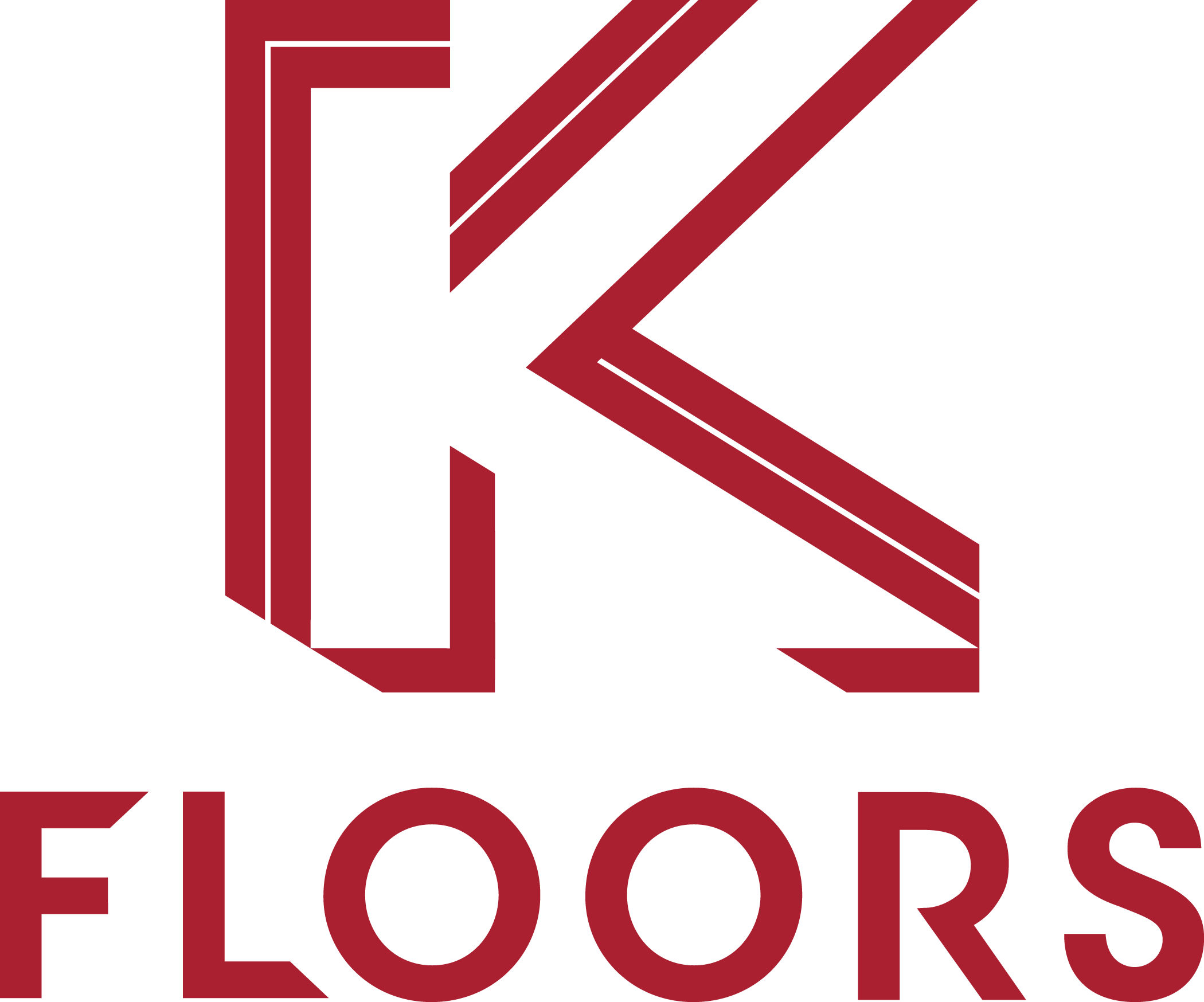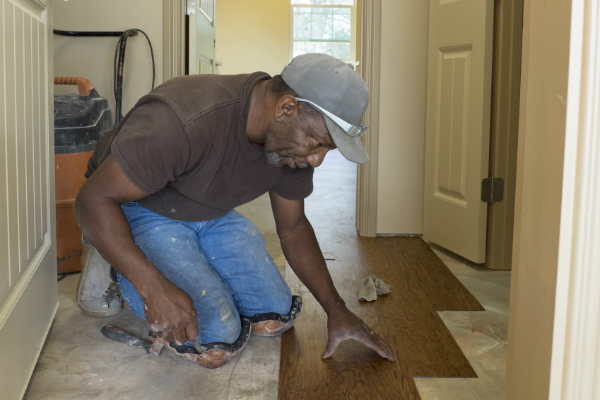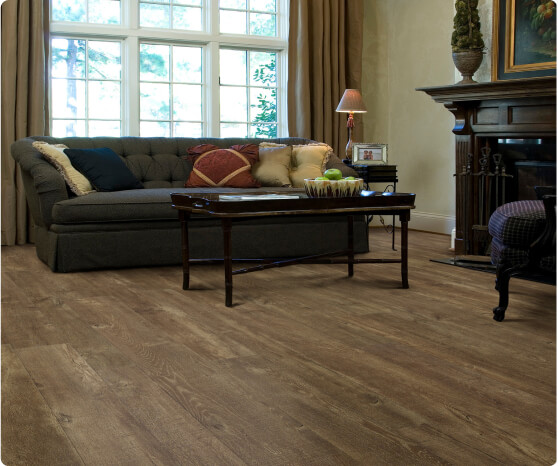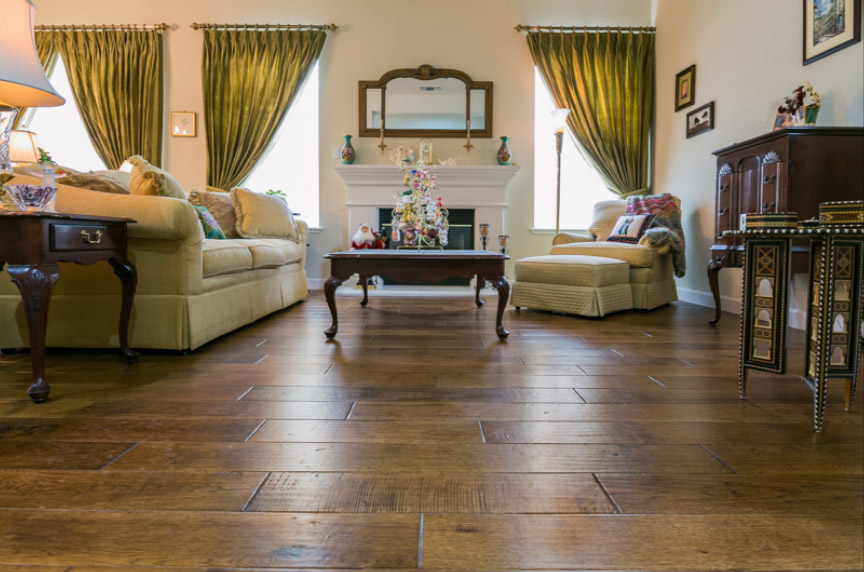
Discover the secrets behind the unparalleled durability of stone-polymer composite vinyl plank flooring. Unveil the fascinating science that makes this flooring option a top choice for homeowners seeking both style and resilience. By delving into the innovative composition and construction techniques, you’ll gain a deeper understanding of why this flooring stands the test of time. From its inception to present-day advancements, explore the historical context that has shaped this cutting-edge flooring solution. Get ready to elevate your knowledge about flooring durability and make informed decisions for your next home improvement project.
Table of Contents
ToggleUnderstanding Durability
Flooring basics
Flooring serves as the foundation of a living space, providing stability and aesthetics to the environment. Different flooring materials, including hardwood, laminate, tile, and vinyl, cater to various needs and styles. Choosing the right flooring is crucial for both functionality and visual appeal.
Durability factors play a significant role in determining the lifespan of flooring materials. Factors such as material quality, thickness, and construction impact how well a floor can withstand daily wear and tear. Understanding these factors is essential in ensuring longevity and maintaining the floor’s appearance over time.
Durability factors
Material quality, construction, and wear layer thickness are key elements that influence the durability of flooring. High-quality materials like stone-polymer composite vinyl plank flooring offer superior strength and resilience against scratches, dents, and stains. The construction of the flooring, including its layers and core structure, contributes to its overall durability.
The longevity of flooring materials depends heavily on their ability to withstand constant use and environmental stressors. Wear and tear from foot traffic, furniture movement, and spills can gradually degrade flooring surfaces. Proper maintenance and choosing durable materials are essential in preserving the floor’s integrity over time.
Vinyl vs others
Vinyl flooring stands out among other common flooring options due to its unique blend of benefits. Compared to materials like hardwood, laminate, and tile, vinyl offers water resistance, easy maintenance, and affordability. However, it may lack the natural look and feel of authentic hardwood or stone.
When considering flooring options, it’s important to weigh the pros and cons of each material. While vinyl excels in areas like moisture resistance and cost-effectiveness, it may not provide the same level of luxury or long-term value as hardwood or tile. In specific scenarios where moisture is a concern or budget is a priority, vinyl flooring emerges as a practical and durable choice.
Science of Stone-Polymer Composite
Composition insights
Vinyl flooring materials consist of PVC resin, plasticizers, stabilizers, and pigments. These components combine to form a durable and versatile flooring option. Polyvinyl Chloride (PVC) resin serves as the primary ingredient in vinyl production, providing flexibility and strength to the flooring. The composition of vinyl is crucial for its durability, as it determines the resistance to wear, scratches, and stains.
Polymer role
Polymers play a vital role in enhancing the durability and strength of stone-polymer composite vinyl plank flooring. By incorporating polymers into the mix, manufacturers improve the resilience and longevity of the flooring. Various types of polymers are used in vinyl flooring production, each offering unique properties that contribute to the overall durability of the floor.
Pro: Polymers increase durability.
Con: Some polymers may impact environmental sustainability.
Stone strength
Stone serves as a key component in stone-polymer composite vinyl plank flooring, adding robustness and resilience to the product. The inclusion of stone particles enhances the strength and impact resistance of vinyl planks. Different types of stones, such as limestone and quartz, are utilized in manufacturing vinyl flooring to achieve varying levels of durability and aesthetics.
- Types of stones used: Limestone, quartz, marble.
- Benefits: Enhanced durability and aesthetic appeal.
Scratch Resistance Explained
Surface Technology
Surface technology in stone-polymer composite vinyl plank flooring plays a crucial role in enhancing its durability. Innovative surface coatings are applied to protect the flooring from scratches and wear. These coatings often consist of aluminum oxide or ceramic beads, which provide a tough barrier against damage.
The advanced surface technologies used in vinyl plank flooring include embossed textures that mimic the look and feel of natural materials like wood or stone. These textures not only enhance the aesthetic appeal of the flooring but also improve its scratch resistance. By incorporating these technologies, manufacturers ensure that the flooring can withstand daily wear and tear, making it ideal for high-traffic areas.
Pros:
- Enhanced scratch resistance
- Improved aesthetics with realistic textures
Con:
- Initial cost may be higher than traditional flooring options
Impact of Materials
When considering the environmental impact of vinyl flooring materials, it is essential to evaluate their sustainability. The choice of materials can significantly influence how eco-friendly the flooring is. Opting for recycled content in the production process can reduce the environmental footprint of vinyl plank flooring.
The long-term implications of material selection on the environment are profound. By choosing sustainable materials, such as those with low volatile organic compound (VOC) emissions, consumers can contribute to a healthier indoor environment. Selecting materials that are recyclable or made from renewable resources promotes a more sustainable approach to flooring.
- Environmental impact assessment
- Sustainability considerations
- Long-term implications on the environment
Maintenance Tips
To preserve the quality and longevity of stone-polymer composite vinyl plank flooring, regular maintenance is key. Essential tips include routine cleaning with a mild detergent and water to remove dirt and debris. Avoid using harsh chemicals or abrasive cleaners that can damage the surface.
Proper maintenance not only keeps the flooring looking its best but also extends its lifespan. In high-traffic areas, consider using floor protectors under furniture legs to prevent scratches. Sweeping or vacuuming regularly can help prevent dirt buildup that could scratch the surface over time.
- Importance of regular cleaning
- Use of floor protectors
- Sweeping or vacuuming for maintenance
Enhancing Longevity
Wear layer importance
The wear layer in vinyl plank flooring is crucial for protecting the surface from scratches and dents. It acts as a shield against daily wear and tear, ensuring the floor maintains its aesthetic appeal. Different types of wear layers, such as urethane or enhanced coatings, offer varying levels of protection. The thicker the wear layer, the more durable the flooring will be over time.
Core stability plays a vital role in the durability of stone-polymer composite vinyl planks. The core material, typically made from limestone or polyvinyl chloride (PVC), provides structural integrity to the flooring. A stable core ensures the planks remain flat and resistant to impacts, enhancing their longevity. By choosing high-quality core materials, manufacturers can create sturdy and long-lasting vinyl flooring products.
Environmental effects
When it comes to environmental effects, using vinyl flooring raises concerns about sustainability. The production of vinyl involves the consumption of natural resources and emissions that contribute to environmental degradation. However, advancements in technology have led to more sustainable practices in vinyl manufacturing. Companies now focus on recycling programs, energy-efficient processes, and reducing waste to minimize their environmental impact.
Installation Insights
Proper methods
When installing vinyl plank flooring, learning the correct methods is crucial. Follow manufacturer guidelines meticulously for a successful installation. Maintaining vinyl floors properly is essential for longevity.
- Following manufacturer guidelines ensures proper installation
- Maintaining vinyl floors correctly preserves quality and durability
Subfloor preparation
To ensure the longevity of vinyl plank flooring, preparing the subfloor correctly is key. A well-prepared subfloor is crucial for the durability of vinyl floors. Address common subfloor issues before installation to avoid future problems.
- Preparing the subfloor correctly is essential for vinyl plank installation
- Addressing subfloor issues before installation prevents future complications
Impact on durability
Various factors can impact the durability of vinyl plank flooring. The installation, maintenance, and usage play significant roles in maintaining floor durability. Mitigate risks that could affect the longevity of vinyl floors for prolonged use.
- Installation, maintenance, and usage influence the durability of vinyl floors
- Mitigating potential risks ensures the longevity of vinyl plank flooring.

Maintenance for Longevity
Regular care
Regular care and maintenance are essential for preserving the durability of stone-polymer composite vinyl plank flooring. By following a consistent cleaning routine, you can prevent dirt and grime buildup that may damage the flooring over time. It is recommended to sweep or vacuum the floors regularly to remove debris and dust particles that can scratch the surface.
To maintain the quality of vinyl floors, consider using a damp mop with a mild cleaning solution specifically designed for vinyl. Avoid harsh chemicals or abrasive cleaners that can cause discoloration or damage to the flooring. By cleaning spills promptly and avoiding excessive moisture, you can prolong the lifespan of your vinyl planks.
Damage prevention
Effective strategies for preventing damage to vinyl plank flooring include placing protective pads under furniture legs to avoid scratches and dents. High heels, sharp objects, and heavy furniture can all cause damage to vinyl floors if not handled carefully. By using rugs or mats in high-traffic areas and entryways, you can reduce the risk of wear and tear on the flooring.
Common causes of damage to vinyl plank flooring include dragging heavy furniture, dropping sharp objects, and exposure to direct sunlight. To prevent these issues, consider using furniture glides or felt pads under heavy items to protect the flooring’s surface. Closing blinds or curtains during peak sunlight hours can help minimize fading and discoloration.
Repair strategies
When it comes to repairing damage on vinyl plank flooring, there are several strategies you can utilize depending on the extent of the damage. For minor scratches or dents, consider using a repair kit specifically designed for vinyl floors. These kits typically contain putty or markers that can seamlessly blend with the flooring’s color.
If you encounter deeper scratches or gouges, you may need to replace individual planks to restore the floor’s appearance. DIY repair techniques such as heat guns or floor polish may be effective for minor issues but seek professional help for extensive damage or large-scale repairs. By addressing damage promptly, you can maintain the integrity and aesthetics of your stone-polymer composite vinyl plank flooring.
Frequently Asked Questions
General inquiries
Stone-polymer composite vinyl plank flooring is known for its durability and water resistance, making it a popular choice. It offers easy maintenance and comes in various styles to suit different preferences. When selecting vinyl flooring, consider factors like room usage, traffic levels, and desired aesthetics.
Pros:
- Durable and water-resistant
- Easy to maintain
- Versatile styles available
Con:
- Can be prone to scratches
- May not add as much value to a property as natural materials
Installation queries
Installing stone-polymer composite vinyl plank flooring requires proper subfloor preparation for a smooth surface. Begin by cleaning and leveling the subfloor, then follow the manufacturer’s guidelines for adhesive application and plank installation. Finish with trim pieces for a polished look.
- Clean and level the subfloor
- Follow manufacturer’s instructions for adhesive application
- Install planks according to the recommended pattern
- Add trim pieces for a finished appearance
Maintenance concerns
To maintain stone-polymer composite vinyl plank flooring, clean up spills promptly to prevent staining and use felt pads under furniture legs to prevent scratches. Regularly sweep or vacuum to remove dirt and debris, and avoid using harsh chemicals that can damage the floor’s finish.
- Use felt pads under furniture legs
- Clean spills promptly to prevent staining
- Sweep or vacuum regularly to remove dirt and debris
Closing Thoughts
Understanding the durability of stone-polymer composite vinyl plank flooring is crucial for making informed choices about your home. With a deep dive into the science behind its robustness and scratch resistance, you now possess the knowledge to enhance its longevity through proper installation and maintenance. By grasping these key aspects, you can ensure that your flooring not only looks stunning but also stands the test of time effortlessly.
Make the most of this newfound understanding by applying these insights to your flooring decisions. Whether you are renovating or building a new space, prioritize durability and longevity by opting for stone-polymer composite vinyl plank flooring. Your home deserves the best, and now you have the tools to make it happen.
Struggling To Find The Perfect Stone-Polymer Composite (SPC) Vinyl Plank Flooring That Aligns With Your Unique Vision?
Located in the bustling heart of Concord, California, K Floors is your ultimate destination for turning your vision into reality when it comes to Stone-Polymer Composite (SPC) Vinyl Plank flooring. We’re not just another flooring company; we’re your trusted partners in crafting spaces that radiate quality, dependability, and an unparalleled selection. Whether you’re envisioning the timeless elegance of wood-look SPC, the rustic charm of textured SPC, or the contemporary sophistication of high-gloss SPC, our range is as diverse as your creative imagination.
The K Floors distinction is unmistakable. Say goodbye to the uncertainty of selecting the perfect SPC flooring. Our team of seasoned experts is dedicated to guiding you every step of the way. From complimentary in-home consultations, where we bring our expertise right to your doorstep, to our collaborations with leading SPC suppliers, we ensure that excellence isn’t just a promise—it’s our legacy. Explore our extensive collection, showcasing a variety of SPC options, including Wood-Look, Textured, High-Gloss, and more. Your ideal floor isn’t merely a purchase; it’s a carefully curated choice.
At K Floors, we’re committed to delivering an experience, not just a transaction. Rooted in Concord, California, we’ve seamlessly blended traditional craftsmanship with modern aesthetics, ensuring that each SPC floor we install transforms your space into a place that truly feels like home. Whether you’re embarking on a residential renovation or a commercial transformation, every project we undertake reflects our unwavering commitment to quality and authenticity. So why delay? Step into K Floors, and let’s embark on the journey to your perfect SPC flooring together.
Disclaimer
The materials available on this website are for informational and entertainment purposes only and not to provide legal advice. You should contact your attorney to obtain advice concerning any particular issue or problem. You should not act or refrain from acting based on any content included in this site without seeking legal or other professional advice. The information presented on this website may not reflect the most current flooring developments. No action should be taken in reliance on the information contained on this website and we disclaim all liability concerning actions taken or not taken based on any or all of the contents of this site to the fullest extent permitted by law.




